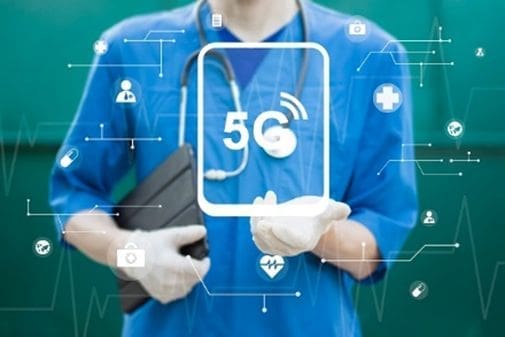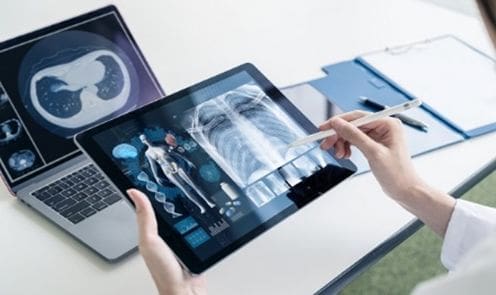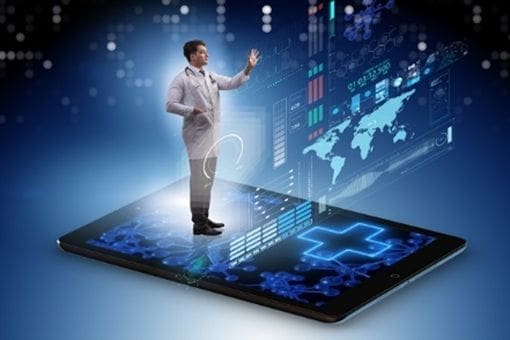
The healthcare industry has experienced its fair share of revolutionary innovations in the past decade and the most anticipated of all is the emergence of 5G technology.
5G will be the platform that offers tremendous connectivity and rapid speed that holds the potential to transform healthcare systems and the way they work. The next generation of wireless communication will make way for easier diagnosis, better treatment, smarter equipment, and faster data transmission so there is better health support for patients.
Here are five ways 5G can help the medical industry to transform mental healthcare in 2020.
Reliable, real-time remote monitoring 
The adoption of IoT devices and mental health apps has created opportunities for clients and clinicians to monitor patients and collect data to provide the best personalized care. Remote monitoring increases the patient’s engagement with their own health and also decreases the costs of visiting hospitals for every little issue. This is especially helpful for people who’ve neglected mental health care due to doctor fees and treatment expenses.
It’s also incredibly convenient since treatment can take place at any time and from the comfort of their home which is an advantage for those who aren’t comfortable with in-person appointments. Clients also have the option to seek treatment with anonymity and without involving other people.
5G technology has lower latency and high-speed capacity which is perfect for healthcare systems that can enable remote monitoring for multiple patients. This eliminates the need for excessive wiring using an rg147 cable for data transmission of monitoring applications.
Artificial Intelligence
AI technology holds immense transformative power that can change the healthcare industry forever. It can help medical experts and doctors to tackle large volumes of patient data and conduct predictive analysis on when they’re most likely to suffer from depression, anxiety, etc. This will enable clinicians to intervene at the right moments and prevent all sorts of worst-case scenarios.
Put simply, by running AI algorithms on 5G networks medical facilities can analyze the same data faster and prescribe the right treatment to patients. AI tools will help healthcare organizations to provide the best care possible from wherever they are.
Passive Symptom Tracking
IT specialists and healthcare experts are investing a lot of effort and funds into developing apps that use built-in sensors in smartphones to collect data. These sensors use complex algorithms to record a patient’s sleeping patterns, behavior changes, social interactions, and more. Such apps are being fashioned to evaluate data to determine the state-of-mind of users and recognize notable changes in their behavior. They’re being programmed with an alerting system that can immediately notify the designated doctor or caregiver when a client requires attention. With 5G technology, mental health experts can create apps and systems that support a wide range of clients and provide them the right treatment. This ability to leverage a network of sensors and data collection systems using cutting-edge technology has created the immense potential for medical institutes to provide constant healthcare to patients.
Transmitting large files 
MRIs, CT scans, and x rays, etc. are generally heavy files that need to be digitally sent to a specialist to review and analyze. Encountering lagging networks and slow transmission speeds are some of the major struggles that 5G is meant to eliminate after its implementation. In doing so, patients would no longer have to wait to receive treatment and doctors can see more patients in a given time. The next generation of wireless communication will enable the transmission of large data packets without crowding the network, which is crucial to the healthcare sector in providing immediate prognosis and treatment.
The added benefit of a high-speed network is that existing systems can increase efficiency and enhance the quality of care so patients are assured that they’re being treated with utmost care.
Break down language barriers
It’s very common for doctors to encounter patients who aren’t native speakers of the language spoken in that place or even English. Such clients are unavoidably at a disadvantage in cases of emergencies since they’re unable to explain their health issues or how they feel. This leads to miscommunications and failure to understand the complications of their diagnosis. Especially in those scenarios where a patient is required to explain their health history such as substance abuse, depression & anxiety, attempted suicide, etc.
To counter such barriers, many healthcare systems are leveraging language translators to help medics and clinicians to communicate with patients. However, medical facilities are still working on providing translators for less common languages in hospitals and care centers. Some translators are being designed with video conferencing features so that the patient and doctors can communicate in real-time. This is going to be a focal point in 2020, where 5G technology will create better opportunities for doctors and healthcare providers to interact with patients who don’t speak the native language. Patients will be able to explain their medical condition clearly, making it easier for doctors to prescribe the right treatment.
The thing about 5G networks technology is that they can transmit large files and databases rapidly without lag while also being able to perform labor-intensive tasks. Medical professionals can deeply benefit from its low-latency since they’re normally required to make decisions on the spot so network delays are a definite no-no. Such advancements in networking technology have paved the way for digital therapeutics where clients can be given therapies at home using VR, AR, or mixed reality. Research has shown major positive signs regarding the use of virtual reality to help patients suffering from mental health issues or substance abuse.
Wrapping Up
Powering our mental healthcare systems and facilities with 5G technologies, we’re enabling specialists to enhance patient experience and deliver the best level of care. VR technology will help professionals to deliver innovative treatments to patients suffering from substance abuse or any mental illness. Ultimately, doctors can harness modern applications to research patient conditions and provide more personalized and preventive care. 5G holds the potential to unleash a wave of intuitive solutions that can transform the medical sector and improve the quality of treatment.



 Author Bio:
Author Bio:
Be the first to comment